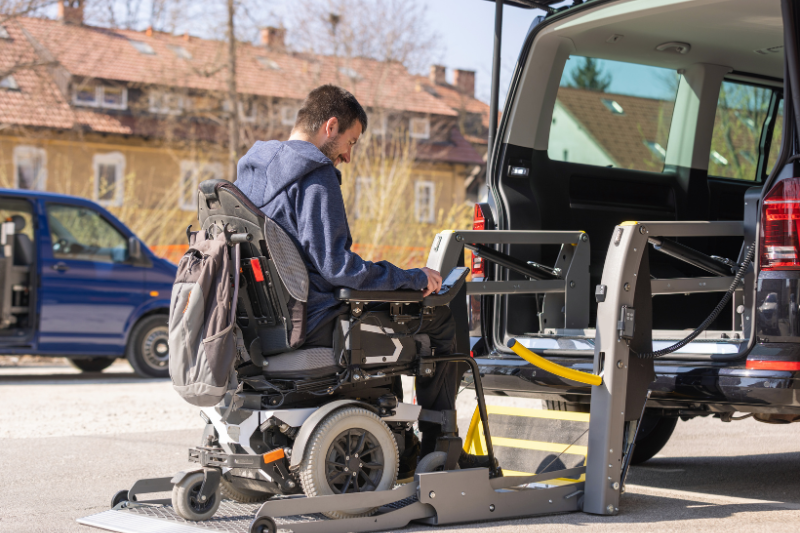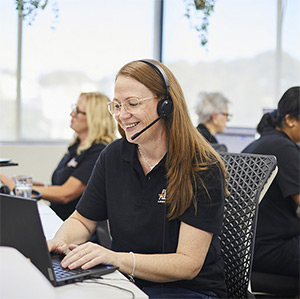(Updated for the 2025–26 Pricing Arrangements)
When it comes to the NDIS, one of the most common questions we hear is:
“Can the NDIS fund this piece of equipment?”
Yep, this bit of the NDIS is such a head-scratcher! You’re definitely not the only one — we chat to parents and participants all the time who aren’t sure if things like an iPad for communication, a wheelchair, or even an electric bed can actually be funded through their NDIS plan.
It’s completely understandable, the rules aren’t always clear, and you’re just trying to make life a bit easier, safer, and more independent for yourself or someone you care for.
This guide will help you understand what assistive technology (AT) means under the NDIS, how the funding works, and what’s generally covered — or not.
We’ll also go through 10 of the most common items people ask about.
What is Assistive Technology (AT)?
The NDIS defines Assistive Technology as equipment or devices that help you do something you can’t do, or can’t do safely, because of your disability. According to the NDIS Pricing Arrangements and Price Limits 2025–26, assistive technology sits under the Capital Supports budget (Category 05: Assistive Technology). This funding is for high cost or high risk items, things like wheelchairs, communication devices like iPad and tablets, or home modifications — not everyday items. The NDIA looks at each request for AT based on whether it is reasonable and necessary to meet your disability-related needs. To be funded, the equipment must:- Relate directly to your disability.
- Help you achieve a goal in your plan.
- Represent value for money.
- Be considered safe and appropriate for your situation.
Types of Assistive Technology
The NDIS groups assistive technology into three levels based on risk, complexity, and cost:- Low-cost AT – under $1,500 (for example, a shower chair, or simple communication app). This is often claimed from your Core – Consumables budget if your plan allows for it.
- Mid-cost AT – $1,500 to $15,000. Usually requires a quote and written evidence (such as an OT or therapist report).
- High-cost AT – over $15,000. Requires formal assessment, quotes, and NDIA approval before purchase.
FAQ: 10 Common Items People Ask About
Let’s look at the ten most common products we get questions about. For each one, we’ll explain what’s generally covered and what’s not — and what might be possible in specific cases.1. Will the NDIS pay for iPads and Tablets?
Generally, the NDIS does not fund standard iPads or tablets because they are considered everyday consumer technology. Most people use them for entertainment, email or web browsing, so they’re usually seen as lifestyle items, not disability supports. However, funding may be possible in specific cases if the device is essential for disability support. For example:- A speech pathologist recommends it as part of a communication system (AAC app).
- It replaces another piece of approved assistive technology (e.g. a specialised communication device).
2. Will the NDIS pay for a Laptop or Computers?
Like tablets, laptops and computers are generally not funded unless they are directly linked to your disability support needs. Funding may be possible if:- You use specialised software for communication or learning (e.g. text-to-speech for a vision impairment).
- The computer is part of a broader assistive technology setup recommended by an allied health professional.
3. Will the NDIS pay for an Apple Watch or Smartwatch?
Generally, the NDIS does not fund Apple Watches or other smartwatches, as they are considered lifestyle or fitness products. That said, funding may be possible if the watch serves a disability-related purpose — for example:- Fall detection for someone with epilepsy, Parkinson’s or a balance disorder.
- Emergency alerting or communication for someone who can’t use a phone safely.
4. Will the NDIS pay for Hearing Aids?
Hearing aids are a bit unique because they are usually funded through the Hearing Services Program (HSP), not directly through the NDIS. However, if you’re not eligible for the HSP — or you need a device that goes beyond what’s available through that program — the NDIS may fund it under Capital – Hearing Equipment (Registration Group 0122). Custom accessories (like Bluetooth streamers or special ear moulds) may also be funded if they’re directly related to your hearing support needs and recommended by an audiologist.5. Will the NDIS pay for Wheelchairs (Manual or Electric)?
The NDIS commonly funds both manual and powered wheelchairs when they are needed because of your disability and have been recommended by a qualified therapist. This includes:- Standard or custom manual wheelchairs.
- Power wheelchairs for independent mobility.
- Postural supports and seating modifications.
6. Will the NDIS pay for a Mobility Scooter?
Mobility scooters can be funded, but only if:- Your disability significantly affects your ability to walk or move safely over longer distances.
- You need the scooter to access the community, work, or education.
7. Will the NDIS pay for Communication Devices? (AAC and Speech Apps)
The NDIS often funds Augmentative and Alternative Communication (AAC) devices, systems or apps only when they are necessary for communication. This could include:- Dedicated communication devices (like a speech-generating device).
- iPads or tablets configured specifically with an AAC app and protective case.
- Software licences or voice output systems.
8. Will the NDIS pay for Adjustable Beds or Hospital Beds?
The NDIS may fund an adjustable bed or hospital bed if it is required for disability-related care — for example, to help with positioning, transfers, or pressure management. Beds used mainly for comfort or convenience (like a standard electric recliner bed) are not funded. If needed, the item would fall under Capital – Assistive Products for Personal Care and Safety (Registration Group 0103). You’ll usually need an occupational therapist’s report, a quote, and approval before purchase.9. Will the NDIS pay for Lift Chairs?
Lift chairs — also known as recliner lift chairs — are sometimes funded when they are essential for transferring safely from sitting to standing, due to mobility limitations or risk of falls. They are not funded if used for comfort, relaxation, or as ordinary furniture. If approved, funding comes under Capital – Assistive Products for Personal Care and Safety (0103). Evidence must show that a lift chair is the most appropriate and cost-effective solution, not just a convenience item.10. Will the NDIS pay for GPS Trackers or Fall Detectors?
These devices can be considered assistive technology for safety, especially for participants with cognitive, memory, or mobility impairments. Generally, the NDIS may fund a GPS or fall detection device if:- It helps you live independently or move safely in the community.
- It directly reduces the need for paid supports or supervision.
- It has been recommended as a reasonable and necessary safety support.
How Funding Decisions Are Made
The NDIS Pricing Arrangements and Price Limits 2025–26 outlines that all equipment purchases must:- Align with your plan goals.
- Meet the “reasonable and necessary” criteria under Section 34 of the NDIS Act.
- Fall within the correct support category (such as Capital – Assistive Technology).
- Comply with quoting and claiming rules — including that high-cost or complex AT requires NDIA approval before purchase.
Who Helps You Get AT Approved?
Here’s how it usually works:- Your therapist or allied health professional (like an OT, physio, or speech pathologist) assesses your needs and recommends suitable equipment.
- A quote or AT form is prepared, sometimes with photos or clinical justification.
- You or your Support Coordinator submit the documentation to the NDIA for approval.
- Once approved, your Plan Manager (like Plan Hero) arranges payment when the invoice arrives.
Low-Cost AT: A Quick Note
The NDIS allows low-cost AT purchases (under $1,500 per item) from your Core – Consumables budget in some cases. This can include:- Shower chairs, grab rails, or long-handled sponges.
- Basic sensory or safety devices.
- Simple communication or learning supports.
What the NDIS Won’t Usually Fund
The NDIA generally won’t fund:- Everyday items used by most people (like standard furniture, TVs, or phones).
- Duplicates of equipment you already have funded.
- Luxury or lifestyle features (like massage functions or designer finishes).
- Items not directly linked to your disability goals.
How Plan Hero Can Help
At Plan Hero, we know how confusing assistive technology funding can be. We speak with families and participants every day who want to make sure they’re using their NDIS funding properly — without risking a declined claim or having to pay back funds Here’s how we help:- Clarity: We explain what’s generally covered and where it fits in your plan.
- Checks before purchase: You can email or call us anytime if you’re unsure whether an invoice can be paid.
- Fast payments: Once it’s approved, your providers are paid promptly — we never hold up your funding.
- No repeat explaining: you have your own plan manager who knows you and your plan, so when dealing with any issues or questions you don’t need to start from scratch each time, or chat to lots of different people



